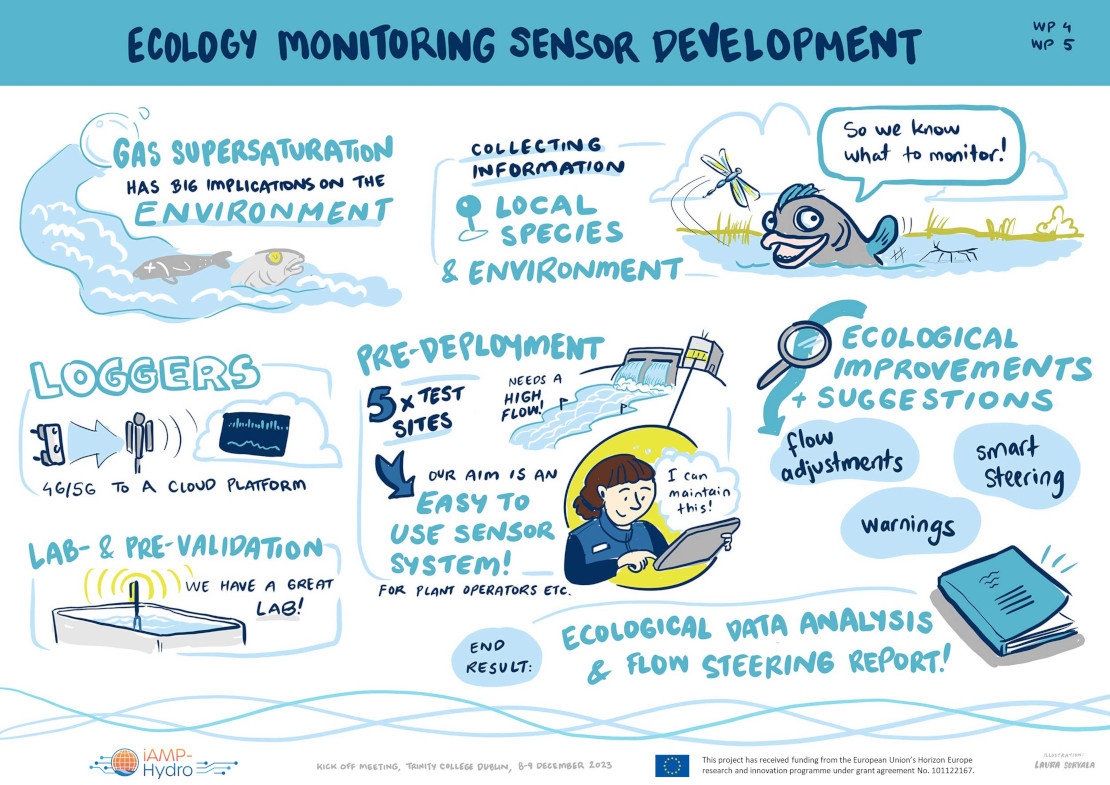
Worked on in work package 4 & 5, lead by NORCE
Challenge (Ecology Monitoring Sensor Development):
WP 4 addresses the challenge of reliable monitoring of key physical parameters related to hydropower regulation (temperature, water level, gas supersaturation).
Today’s tools on the marked are not sufficient. Probes for supersaturation have severe biases such as false measurements due to bubble formation, calibration issues and leaks due to the harsh river environment.
Additionally, environmental monitoring is often independent from hydro power production. As such, relations between river regulation, power production, river management and environmental standards in river are addressed retroactive and imposed by regulations.
Solution in prospect:
The challenge is addressed by the development of a novel, robust and versatile digital sensor for monitoring of water depth, gas supersaturation and water temperature. It can detect and report key environmental parameters in rivers, like gas supersaturation and deviations in flow or temperature, thermo- , saturo-, and hydropeaking and communicate with hydro power management platforms to give the industry the possibilitiy for more environmentally sustainable water management in real time.
Converting the existing analogue gas saturometers into digital probes will lead to decreased power consumption, enhanced accuracy, calibration capabilities, and the potential for modular expansion with additional sensors
A smart sensor can detect supersaturation and trigger operational measures to avoid harmful levels. The solution enables incorporating additional sensors required by the industry into the platform.
Challenge (Ecology Data Analysis & Smart Flow Steering):
WP 5 addresses the challenge of reliable accurate monitoring of the river environment with close to real time reporting when adverse ecological conditions emerge.
Present legislation and awareness of ecological impacts by human activities and increase in energy demand, pose a challenge in being able to deliver sustainable energy without negative effects on environment.
By following predefined production regime in order to fulfill ecological requirements, flexibility in power production is reduced, while at the same time, ecological critical physical conditions can be overlooked or are registered when it is already too late.
Solution in prospect:
WP 5 aims at delivering stable and accurate environmental monitoring as well as modelling of potential ecological improvements.
With improved sensors and a stable and accurate protocol for data transfer from sensors into an ecological model, data can give direct feedback to power production to reduce effects from hydropower on the environment.
The final aim is to be able to provide ecological monitoring with high stability and accuracy and a model to which can warn of adverse conditions and thus contribute to a more environmentally friendly power production.
